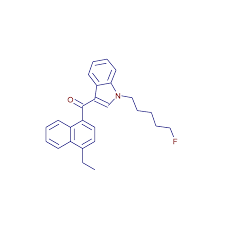Uncategorized
Synthetic cannabinoid Classes and Types
Synthetic cannabinoids are a class of designer drugs that binds to the same receptors as cannabinoids such as THC, CBD and numerous others. More so, these psychoactive substances ought not be mistaken for synthetic Phyto cannabinoids or engineered endocannabinoids from which they are differences.
Usually, Synthetic cannabinoids are sprayed on plants and it is typically smoked, though it can be ingested when in its liquid state. Furthermore, they are promoted especially online as natural incense, or “herbal blends”, and sold under normal names like K2, spice, and synthetic weed. In addition to this, Synthetic cannabinoids are frequently labelled as “not so much for human consumption” as a liability defense.
classes of Synthetic cannabinoids
It is worthy to note that state public health and poison centers have issued warnings in in the use and abuse of products containing synthetic cannabinoids. There are adverse effects in the uses of this cannabinoids, which includes tachycardia (elevated heart rate), elevated blood pressure, unconsciousness, tremors, seizures, vomiting, hallucinations, agitation, anxiety, pallor, numbness, and tingling. Also, some of these health effects can be long-lasting even after the user quits using the substances.
There ere 5 major categories of synthetic cannabinoids, These includes the following
- CBD. Full name: Cannabidiol. Best used for: Sleep, anxiety, stress, inflammation, PTSD.
- CBG. Full name: Cannabigerol. Best used for: Depression, anxiety, inflammation, psoriasis.
- CBN. Full name: Cannabinol. Best used for: Sleep, inflammation.
- CBC. Full name: Cannabichromene.
- CBDA. Full name: Cannabidiolic acid.
Synthetic cannabinoids Types
Synthetic cannabinoids like AM-2201 and EAM-2201 are some of the most widely used used substances in the market today. These cannabinoids are sprayed on herbs and marketed as medicinal marijuana. Usually, they are coated with flavors to avoid detection by the law.
Risks Associated with the use of Cannabinoids
The risks of using synthetic cannabinoids are similar to those of natural cannabis. Because synthetic cannabinoids are more potent than marijuana, it is easy to overdose and experience harmful effects. This higher potency also means that the effects may last for longer. Also, because many synthetic cannabinoids are new, they may have unknown effects too
Reported side-effects from using synthetic cannabinoids include:
- feelings of lightheadedness, dizziness, confusion and tiredness
- feeling excited, agitated and aggressive
- mood swings
- anxiety and paranoia
- suicidal thoughts
- memory problems and amnesia
- nausea and vomiting
- hot flushes
- increased heart rate and blood pressure, which may cause chest pains and damage your heart and even cause a heart attack
- excessive sweating
- fingers, toes or muscles feel numb and tingly
- tremors, seizures and fits

